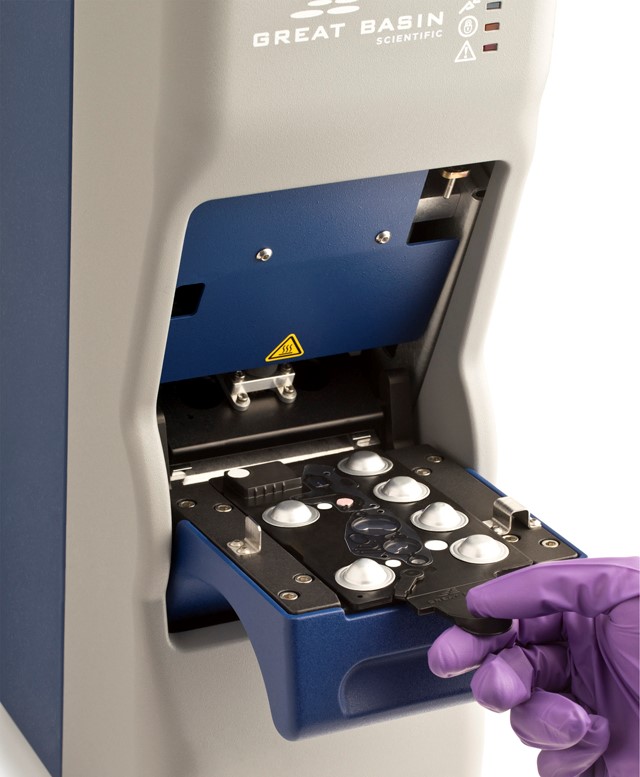
Vela Diagnostics said that it has acquired the bankrupt Great Basin Scientific, in a deal that expands the buyer’s offerings into microbiology.
While Vela did not disclose the price in its announcement, the trustee assigned to the bankruptcy case of Great Basin by the U.S. Bankruptcy Court for the District of Utah, Central Division, stated in a June 15 filing that Vela submitted a highest and best offer of $1.425 million for Great Basin’s “property.”
That “property” is defined as “all personal property of the Debtor, including furniture, fixtures, equipment, patents and other intellectual property, intangibles, inventory, supplies, specimens, and the like.”
Great Basin filed for liquidation of assets under Chapter 7 of the U.S. Bankruptcy Code on March 5. The company reported between $10,000,001 and $50 million in liabilities, and only between $1,000,001 and $10 million in assets, in its Chapter 7 petition.
According to the June 15 filing by bankruptcy trustee Reid W. Lambert of the law firm Strong & Hanni in Salt Lake City, Vela surpassed a $1 million bid for Great Basin’s assets by Sinocare Medtech, a company based in Changsha, Hunan, China. Sinocare topped Vela’s initial $900,000 bid for Great Basin’s property, according to the court filing, which granted a motion to sell that property to Vela.
As a result, Vela adds to its product portfolio Great Basin’s six FDA-approved cartridge-based assays, all running on their own chip-based analyzer platform.
The microbiology assays are designed to provide fast, multiple-pathogen diagnoses, and are being marketed to the fastest-growing point-of-care customer segments, including hospitals and near-patient care providers, Vela said.
“Great Basin’s technology is a strategic fit to the Vela portfolio as it covers medium multiplexing solutions and complements both Vela’s low-multiplexing PCR and high-multiplexing NGS platform,” Vela CEO Michael Tillmann said in a statement. “With the addition of the Great Basin’s technology, near-patient care customers will be able to benefit from this new microbiology offering in our existing geographies; and our presence in the US will be enhanced.”
The FDA-approved products include the Stool Bacterial Pathogens Panel, designed to simultaneously detect Salmonella species, Shigella species, Shiga toxin–producing E. coli (stx1, stx 2, O157 serotype-specific genes), and Campylobacter species (C. jejuni and C. coli), key bacterial pathogens that make up nearly 95% of all food-borne illnesses in the U.S. That panel was commercially launched last year following 510(k) clearance by the FDA in July 2017.
Other FDA-approved products marketed by Great Basin include:
- An assay for Clostridium difficile (C. diff), commercially launched in 2012.
- A test for Group B Strep, commercially launched in July 2015.
- Shiga Toxin Direct, designed to detect the high-virulence serotype O157 and Shiga toxin-producing E. Coli commercially launched in August 2016.
- Staph ID/R Blood Culture Panel, designed to detect bloodstream infections caused by MRSA and other Staphylococcus species, and commercially launched in September 2016.
- Bordetella Direct, an assay for Bordetella pertussis, or whooping cough, commercially launched in May 2017.
Microbiology is one of Vela’s three segments; the other two are virology and oncology.











